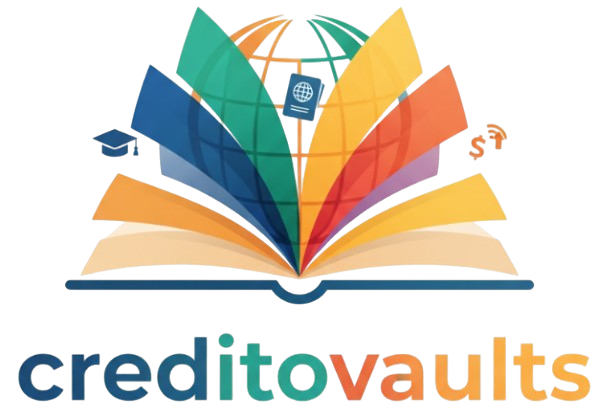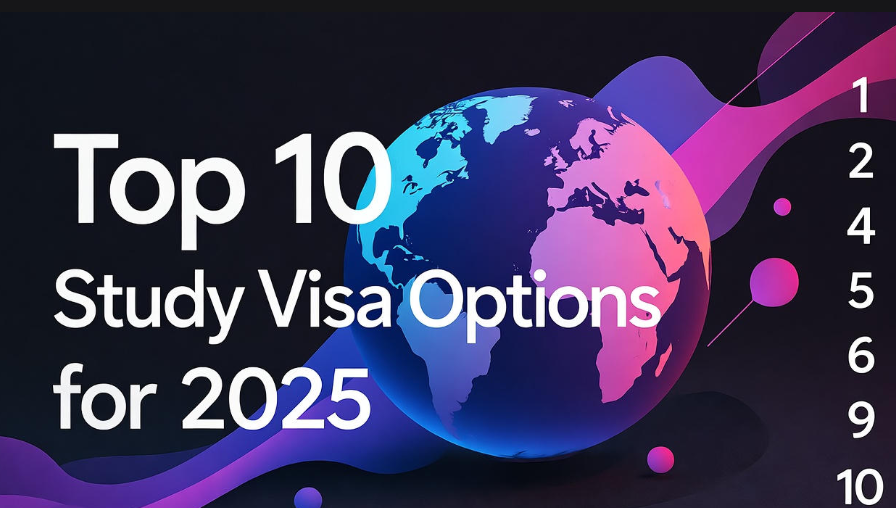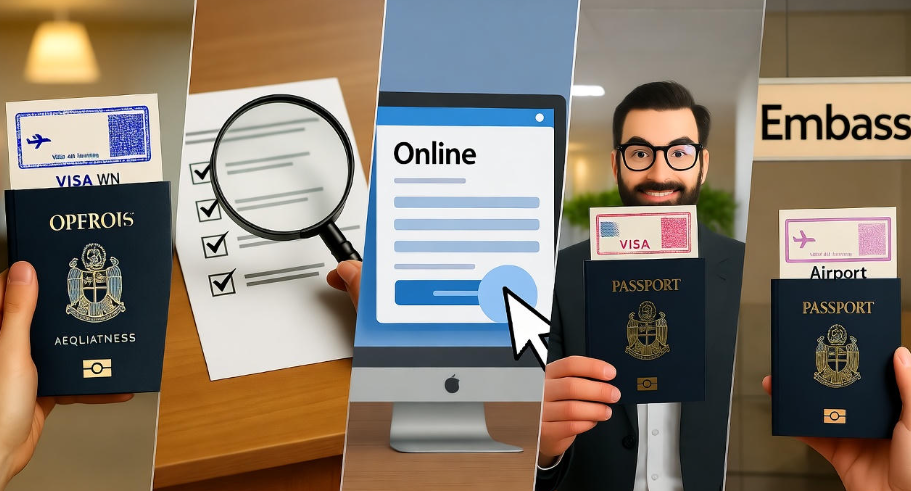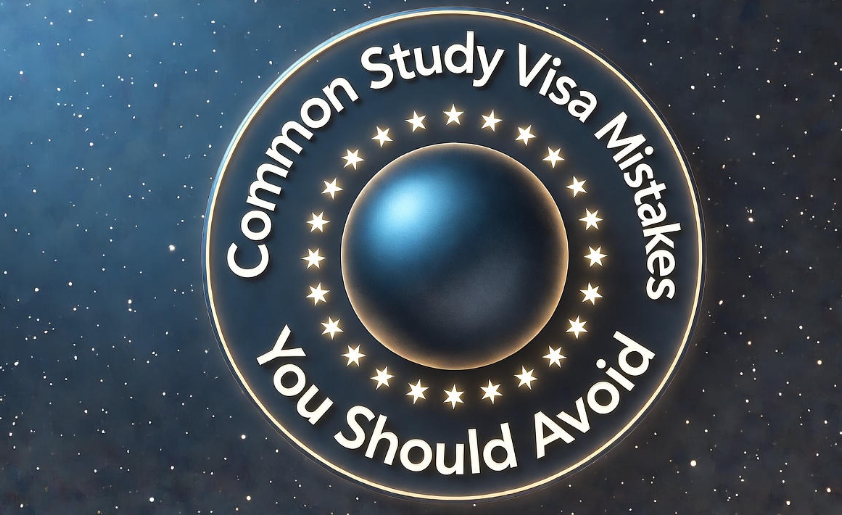Studying abroad is a dream for many students — but let’s be honest, getting a study visa can sometimes feel like the toughest part of that dream. While grades, documents, and financial proof matter, one often overlooked factor is the course you choose.
Yes! The type of course you apply for can play a big role in how easily your visa gets approved.
So, let’s talk about the best courses that help you get study visa approval faster — and why they make your application stronger.
Why Course Selection Matters for Visa Approval
When visa officers review your application, they look for logic and purpose behind your study choice. They ask:
-
Does this course match your previous studies or career goals?
-
Is it in demand in your home country or globally?
-
Is it offered by a reputable institution?
-
Will this qualification help you get a better future job?
If your answers align well with the course you’ve chosen, your visa approval chances rise dramatically. On the other hand, if your choice seems random or unrelated, it might raise red flags.
For example, if someone with a computer science background suddenly applies for a culinary arts diploma — it might look suspicious. But if they apply for a Master’s in Data Science, it’s perfectly logical and strong.
Top Courses That Help You Get Quick Visa Approval ✈️
Here’s a list of some of the most accepted and high-approval-rate courses for study visas in major countries like Canada, UK, Australia, USA, and Europe.
1. Business and Management Courses
This is one of the most popular and safest choices for study visa approval. Courses like:
-
Bachelor’s in Business Administration (BBA)
-
Master of Business Administration (MBA)
-
International Business
-
Entrepreneurship and Innovation
are highly respected worldwide.
Why it helps:
Business programs are practical and directly linked to global employment. Visa officers see them as career-oriented, which makes your intent clear.
Bonus Tip: If you show prior business experience or family involvement in business, your application becomes even stronger.
2. Information Technology and Computer Science
Tech courses are always in demand, and that demand is global. Programs like:
-
Computer Science
-
Cyber Security
-
Artificial Intelligence (AI)
-
Data Science
-
Software Engineering
show that you’re investing in a future-proof career.
Why it helps:
IT courses are skill-based and have clear job outcomes, which means your study purpose is practical and career-driven — something visa officers love to see.
Example: A student applying for a Data Analytics course after completing a Bachelor’s in Mathematics gets an instant edge.
3. Engineering and Technical Courses ⚙️
Countries like Canada, Germany, and Australia welcome engineering students because they need skilled professionals in these fields.
Some top courses are:
-
Mechanical Engineering
-
Civil Engineering
-
Electrical Engineering
-
Mechatronics
-
Renewable Energy Engineering
Why it helps:
Engineering degrees are globally respected, and since they contribute to national development, these programs often have faster visa processing.
Pro Tip: Germany offers tuition-free or low-cost engineering degrees, making visa approval more likely if your documents and financials are clean.
4. Healthcare and Nursing Courses
Healthcare professionals are needed everywhere — and countries like the UK, Ireland, Canada, and Australia often prioritize visas for medical or nursing students.
Top healthcare courses include:
-
Nursing
-
Public Health
-
Physiotherapy
-
Pharmacy
-
Medical Laboratory Technology
Why it helps:
These courses show social value and long-term demand. Visa officers see them as credible and meaningful career paths.
Note: Always provide proof of previous science or biology background to strengthen your application.
5. Hospitality and Tourism Management ✈️
Tourism is one of the fastest-growing industries, and countries like Switzerland, Australia, and Canada are known for hospitality programs.
Popular courses include:
-
Hospitality Management
-
Hotel and Restaurant Management
-
Travel and Tourism
Why it helps:
This field is practical and globally relevant. If your chosen country relies on tourism, your study purpose aligns perfectly with their economy — and that’s a big plus for visa officers.
6. Education and Teaching Courses
Teachers and educators are highly respected and always needed worldwide.
Best options:
-
Early Childhood Education
-
TESOL (Teaching English to Speakers of Other Languages)
-
Educational Leadership
Why it helps:
These programs show long-term purpose and social contribution. They also open pathways for permanent residency in some countries after work experience.
-
Thinking about applying abroad but don’t know where to start? Read more: Step-by-Step Process to Apply for a Study Visa
7. Environmental Science and Sustainability
As climate change becomes a global issue, courses related to sustainability are gaining attention.
Top programs:
-
Environmental Science
-
Climate Change and Sustainability
-
Renewable Energy Management
Why it helps:
Visa officers value applicants choosing courses that support sustainable development goals (SDGs). It shows you’re socially responsible and forward-thinking.

8. Media, Communication, and Design Courses ️
Creative fields like communication, journalism, and design are also well-accepted if you can justify your passion clearly.
Popular programs:
-
Digital Media
-
Graphic Design
-
Film Production
-
Journalism and Mass Communication
Why it helps:
These programs show personal motivation and creativity — which appeals to universities and embassies alike.
9. Agriculture and Food Science
Many European and Australian institutions prioritize agricultural programs.
Examples:
-
Agricultural Science
-
Food Technology
-
Agribusiness Management
Why it helps:
These are practical, research-based fields that contribute to the global economy. If you come from an agriculture-related background, approval chances rise significantly.
10. Short-Term and Diploma Programs with Job Skills
If your goal is quick visa approval and faster entry into the job market, skill-based diploma programs can work wonders.
Examples:
-
Culinary Arts
-
Automotive Technology
-
Electrician or Welding Courses
-
Beauty and Cosmetology
-
Digital Marketing
Why it helps:
These courses are practical, short (1–2 years), and offer direct employment pathways — which many countries love to support through student visa approvals.
Bonus Section: How to Choose the Right Course for Faster Visa Approval
Here’s a simple table that helps you decide
| Factor | What Visa Officers Check | Example |
|---|---|---|
| Course Relevance | Is your course related to your past education/work? | IT student choosing Data Science ✅ |
| Career Outcome | Does this lead to better job opportunities? | Nursing → High demand ✅ |
| Country Demand | Is the field needed in that country? | Engineering in Germany ✅ |
| Duration | Does it make sense (not too short or too long)? | 1–2 years Diplomas are fine ✅ |
| Institution Reputation | Is your college/university recognized? | Public universities = safer ✅ |
Countries That Approve Study Visas Quickly for Certain Courses
| Country | In-Demand Courses | Visa Advantage |
|---|---|---|
| Canada | IT, Nursing, Business, Hospitality | SDS stream for fast visa approval |
| Australia | Engineering, Early Childhood Education, Hospitality | PR pathways and quick decisions |
| UK | Healthcare, Business, Data Science | High acceptance if documents are complete |
| Germany | Engineering, Sustainability, IT | Low tuition = easier justification |
| New Zealand | Education, Agriculture, Tourism | Short courses accepted |
| Ireland | IT, Data Analytics, Nursing | Low rejection rate for logical choices |
Common Mistakes Students Make When Selecting Courses
Even good students sometimes face visa rejection because of poor course selection. Here are mistakes to avoid:
-
Choosing a course unrelated to your background
-
Selecting overly expensive or suspiciously cheap institutions
-
Applying for very short courses (less than 6 months) ⏱️
-
Not researching job demand for the chosen field
-
Giving weak reasons for choosing the course in SOP (Statement of Purpose)
Pro Tips to Strengthen Your Study Visa Application
-
Always connect your course choice to your career goals in your SOP.
-
Highlight how the chosen program adds value to your home country after graduation.
-
Attach evidence of past studies or work experience related to your course.
-
Avoid copying SOPs — make them sound like you’re talking naturally, not writing an essay.
-
Keep all documents (transcripts, bank statements, IELTS) up to date.
Example of a Strong Justification (Sample SOP line):
“I chose the Master’s in Data Science at the University of Toronto because it directly connects to my Bachelor’s in Computer Science and my goal of becoming a Data Analyst. The program’s practical modules and Canada’s tech-driven economy make it the perfect next step for my professional growth.”
That’s the kind of clear, logical, and convincing explanation visa officers expect.
Quick Table: Courses with the Highest Visa Approval Rates (Based on 2024–2025 Trends)
| Field | Level | Visa Approval Likelihood |
|---|---|---|
| Business & Management | Bachelors/Masters | ⭐⭐⭐⭐ |
| IT & Computer Science | Bachelors/Masters | ⭐⭐⭐⭐⭐ |
| Nursing & Healthcare | Diploma/Degree | ⭐⭐⭐⭐⭐ |
| Engineering | Bachelors/Masters | ⭐⭐⭐⭐ |
| Hospitality & Tourism | Diploma/Degree | ⭐⭐⭐⭐ |
| Education | Degree/Certificate | ⭐⭐⭐ |
| Environmental Studies | Masters | ⭐⭐⭐⭐ |
| Agriculture | Diploma/Bachelor | ⭐⭐⭐⭐ |
| Design & Media | Diploma/Degree | ⭐⭐⭐ |
| Skilled Trades | Certificate/Diploma | ⭐⭐⭐⭐ |
FAQs – Best Courses for Quick Study Visa Approval ❓
Q1: Which course gives the fastest visa approval?
Generally, IT, Business, and Healthcare programs get quick approval since they are globally in demand.
Q2: Does course level (bachelor vs diploma) affect visa speed?
Yes, shorter diploma or skill-based courses can sometimes get quicker approval — but it depends on your country and background.
Q3: Which course is best for Canada’s SDS category?
Computer Science, Nursing, Business, and Engineering are all safe bets for SDS visa approval.
Q4: Can I get a visa easily for arts or design programs?
Yes, if your portfolio and motivation letter are strong, creative fields can also get approved quickly.
Q5: How do I make my course choice look logical?
Connect it with your past education, current skills, and future job goals in your SOP.
Q6: What happens if my course is unrelated to my previous studies?
You can still get approved, but you must give a solid reason for the switch — for example, “career change,” “market demand,” or “personal interest backed by short courses.”
Final Thoughts
Choosing the right course can make or break your study visa approval chances. Visa officers are not just checking your papers — they’re judging your intentions and future plans.
So, if you pick a course that:
✅ connects to your past,
✅ fits your career path, and
✅ matches the needs of the country you’re applying to…
Then your study visa process will likely go smoothly and quickly.
Remember, your goal is not just to get a visa — it’s to show that your decision to study abroad makes sense, both for your personal growth and for the country’s development.
✨ Pro Tip: Always consult official embassy guidelines before applying, as visa trends change every year. And don’t forget — confidence, clarity, and a well-justified course choice are your biggest tools for success.




